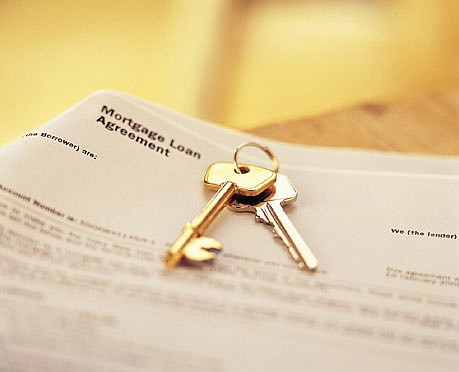Pros and cons of reverse mortgages
October 13, 2011 at 5:06 p.m.
You may have seen ads touting reverse mortgages as the solution for cash-strapped retirees. The mortgage is structured such that homeowners have their home pay them monthly payments until they die or sell the house. These slick ads promise an easy transaction with no danger of ever being kicked out of your own home. While reverse mortgages can make perfect sense in the right circumstance, the truth is there are pros and cons of which you should be aware. Let's start by examining the pros of reverse mortgages so that you can be better prepared to make the right decision.
No default risk. This is perhaps the most important pro to a reverse mortgage. Your home can not be taken from you in the event of non-payment. This is unlike a regular mortgage or home equity loan for which banks and lenders can and will foreclose for non-payment. The peace of mind afforded by this advantage can be priceless!
Tax-free money. The money you receive from a reverse mortgage is tax-free. This is particularly advantageous to those in the higher income tax brackets after retirement.
No downside. What happens if the value of the home declines during the reverse mortgage? Good news: The risk of dropping home prices is bore by the lender, not the homeowner. Even if the reverse mortgage lender has paid out much more than the home value, there is no shortfall risk to the homeowner whatsoever. This is a particlarly powerful reason for reverse mortgages in an economic climate rife with declining home prices.
No restrictions. There are no restrictions placed on how you can use the money from a reverse mortgage. The best part is, no one will ask. Use the money to go on a cruise, indulge in your hobbies, or spoil your grandchildren. There is absolutely no limit to what you can do with the money.
Flexible payment options. A reverse mortgage can pay you in a lump sum or in monthly payments. This flexibility affords you the opportunity to use the money how you see fit.
Easy to qualify. There are no income restrictions or requirements for a reverse mortgage. Since the payments will come directly to you, there are no payments to make--ever!
It really does seem too good to be true. What's the catch? Well, there really isn't a catch, but there are a few cons to reverse mortgages.
May be disqualified from low-income assistance. If you are on government low-income assistance, the income gleaned from a reverse mortgage may disqualify you from this assistance. Be sure to check with a financial adviser if you have concerns.
Reduction in heirs inheritance. Since a reverse mortgage decreases your home's equity, it will affect the amount of inheritance you leave for your heirs.
Must not move from your residence. Remember, a reverse mortgage is due when your home is no longer your primary place of residence. Therefore, if you have thoughts of moving, a reverse mortgage isn't for you.





